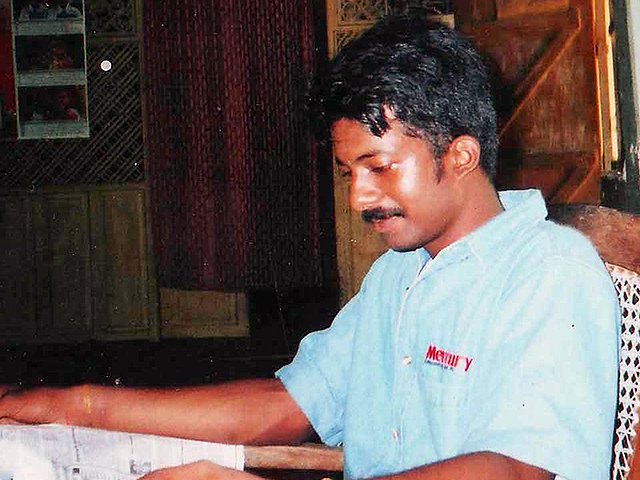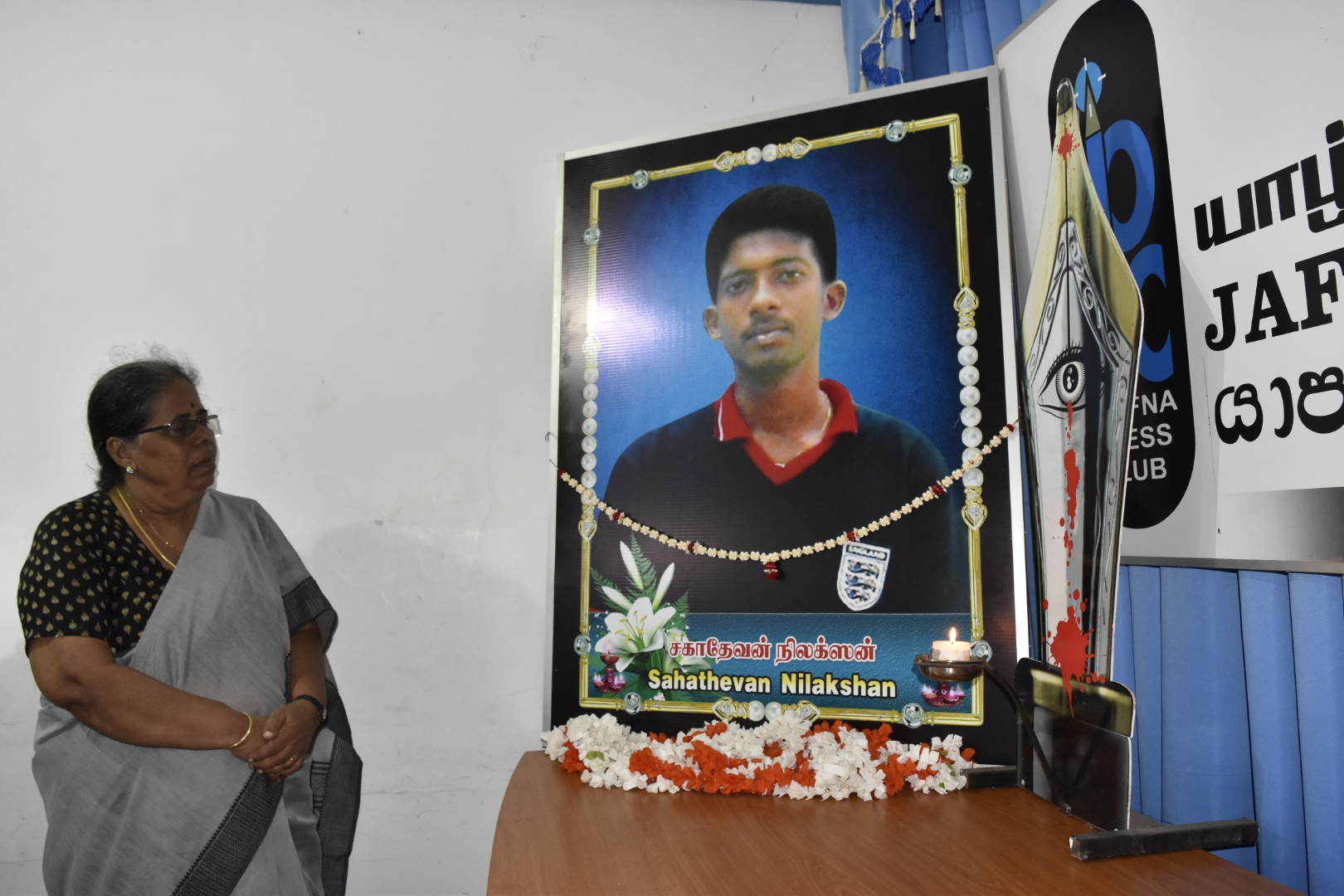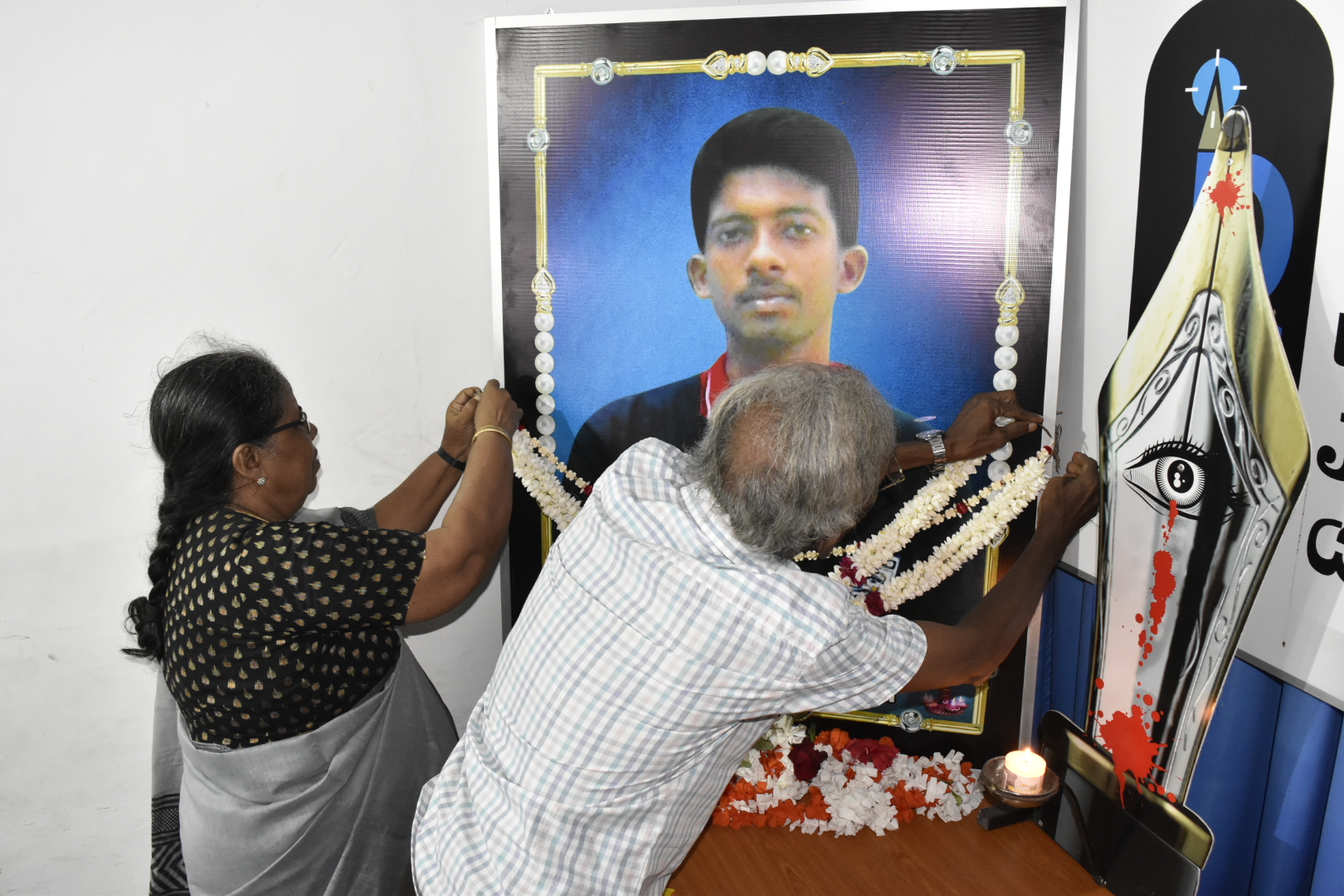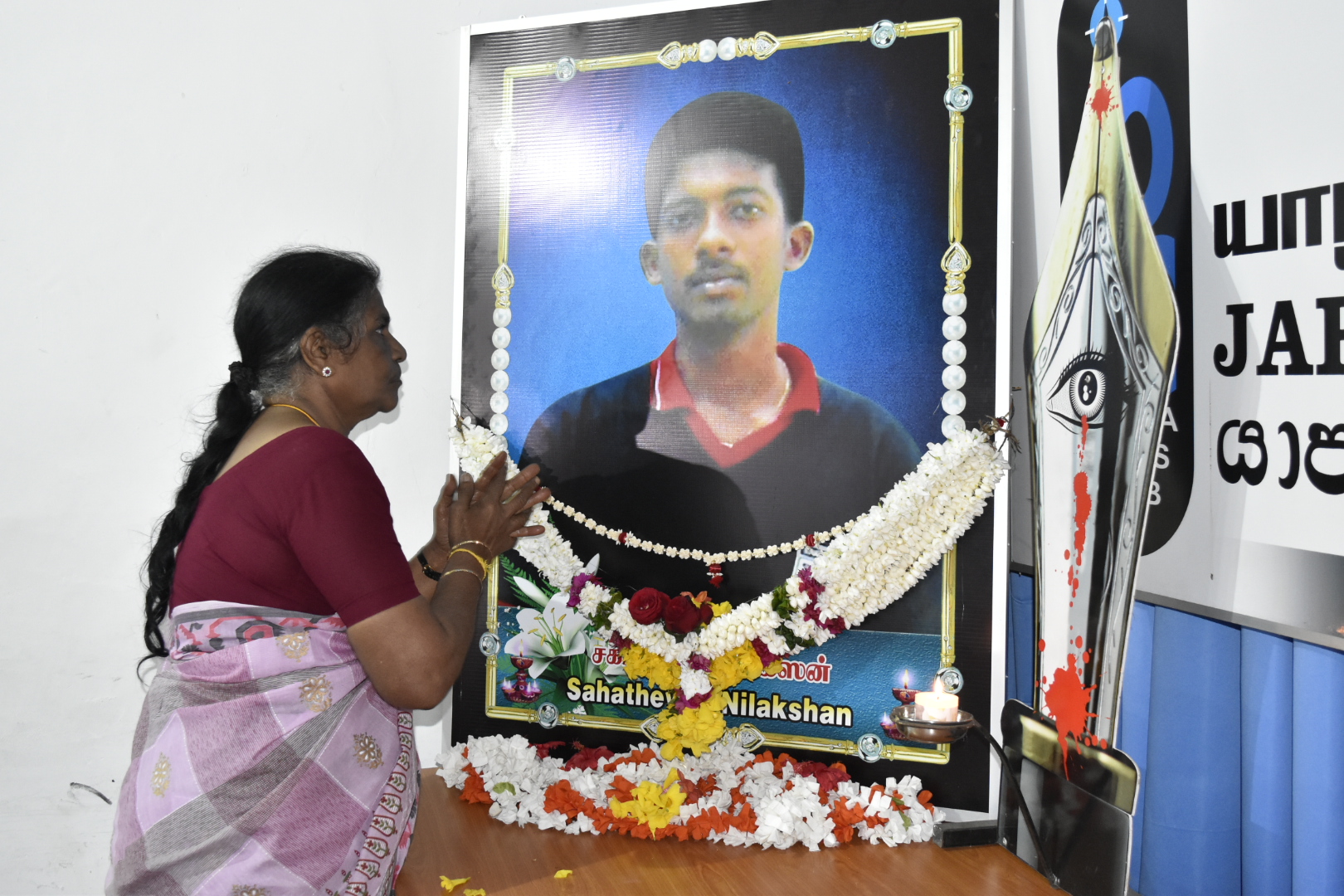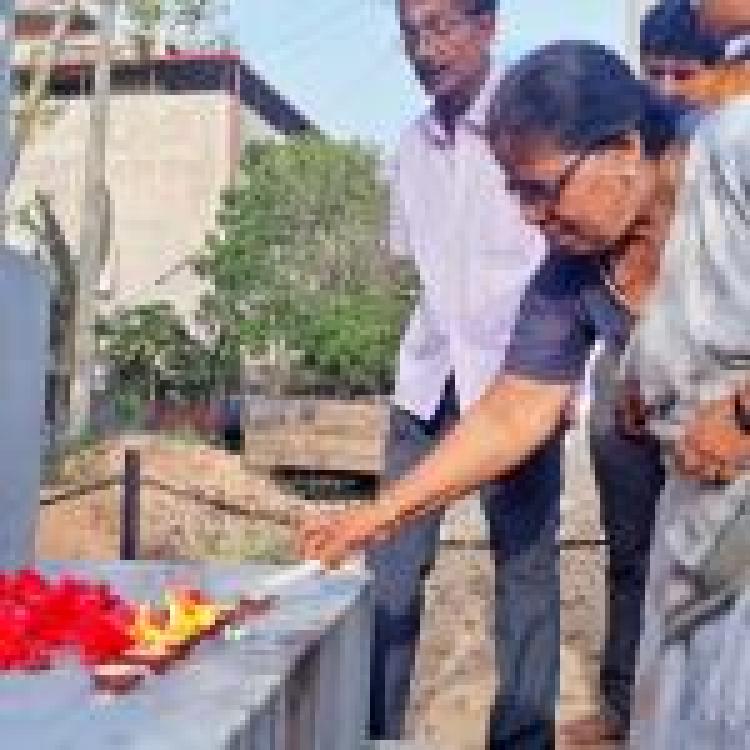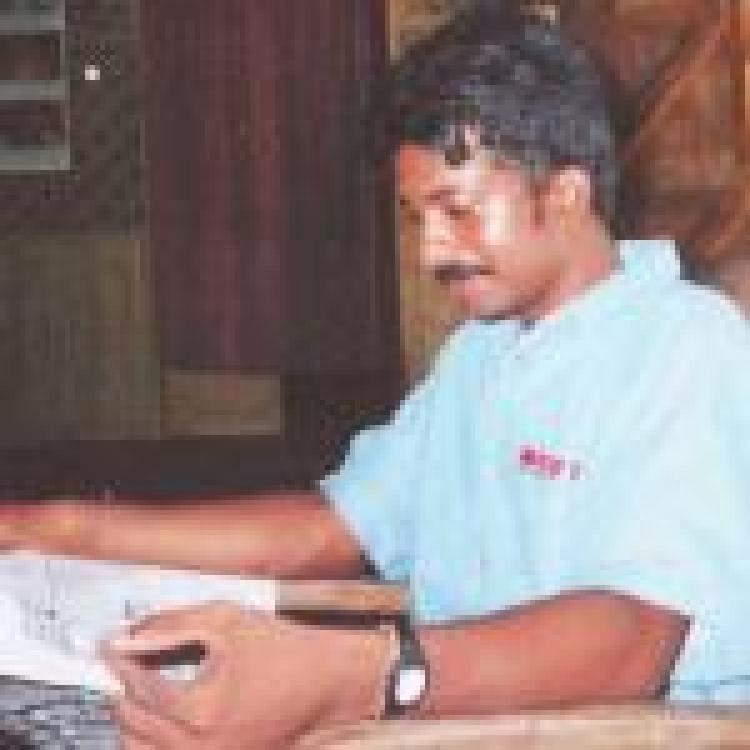Journalists, colleagues and family of a budding Tamil journalist who was murdered 13 years ago held a memorial event in Jaffna today, as they continued their struggle for justice over his killing.
Sahathevan Nilakshan, an up and coming journalist was shot and killed by suspected Sri Lankan military intelligence personnel on August 1st, 2007.
At a time when the Jaffna district was on lockdown due to a military-imposed curfew, and the city’s streets were heaving with troops, so-called unidentified gunmen were able to approach Nilakshan’s home in Kokkuvil, a busy suburb less than 5km away from town.
The perpetrators forced a friend of the journalist to accompany them to Nilakshan’s home and call him outside, before gunning him down.
Nilakshan studied journalism at the Media Resource Training Centre at Jaffna University. "He was killed just days after returning to the northern city of Jaffna from the capital, Colombo, where he had participated in an internship program along with other journalism students,” noted the Committee to Protect Journalists.
"My son was innocent,” said his mother Selvarani Sahadevan in 2018. "The culprits who were behind this killing should be punished. Many Tamil journalists were killed but still there is no justice.”
“His death certificate mentioned that death occurred from brain damage and shock due to the shots,” she added.
She noted that at the time, Nilakshan had attended a remembrance event for Taraki Sivaram, a prominent Tamil journalist who was also murdered. Sivaram was a prominent Tamil journalist and then editor of TamilNet, when he was kidnapped and murdered in Colombo in 2005.
"Maybe the military thought that Sivaram's death should not be commemorated,” said Ms Sahadevan.
According to Together Against Genocide, from 2004 to 2009, over 48 journalists and media workers were reported killed, 41 of whom were Tamil. In recent months, Reporters Without Borders (RSF) warned about the rise in attacks on journalists and Tamil Guardian correspondents on the ground have faced acts of violence and harassment by the security forces.
Sri Lanka is ranked 126th out of 180 countries in RSF’s 2019 World Press Freedom Index.
